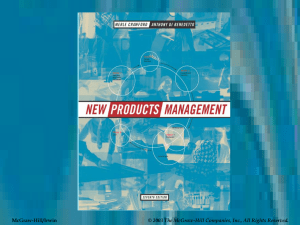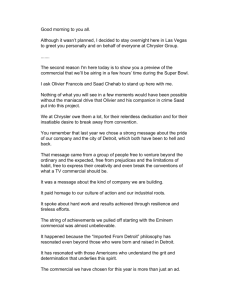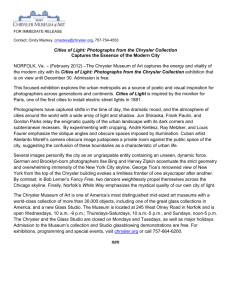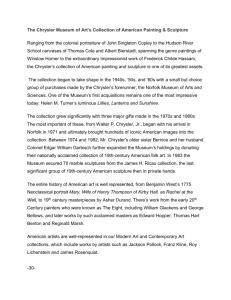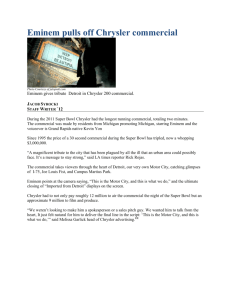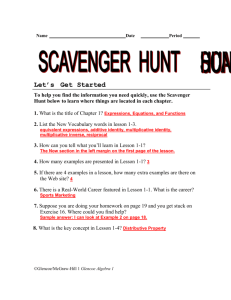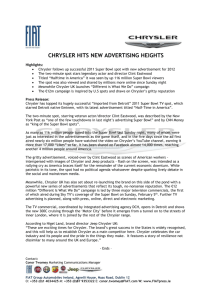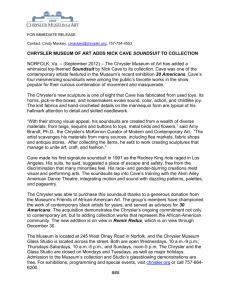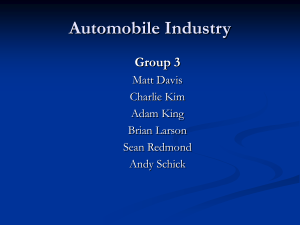Unit 3
advertisement
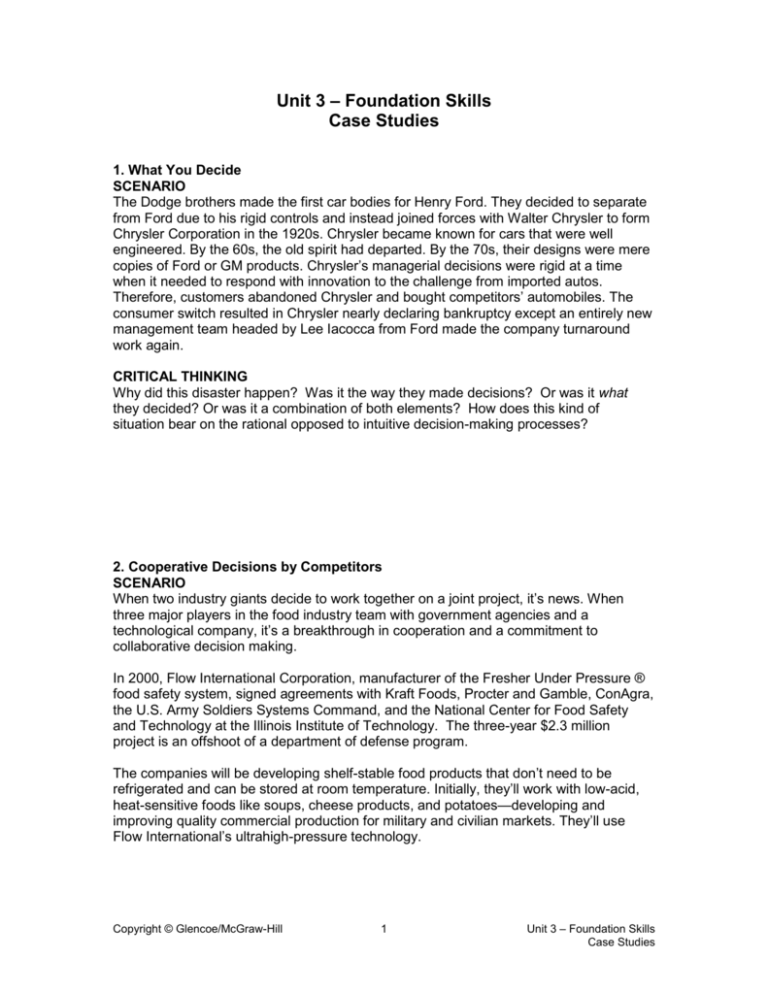
Unit 3 – Foundation Skills Case Studies 1. What You Decide SCENARIO The Dodge brothers made the first car bodies for Henry Ford. They decided to separate from Ford due to his rigid controls and instead joined forces with Walter Chrysler to form Chrysler Corporation in the 1920s. Chrysler became known for cars that were well engineered. By the 60s, the old spirit had departed. By the 70s, their designs were mere copies of Ford or GM products. Chrysler’s managerial decisions were rigid at a time when it needed to respond with innovation to the challenge from imported autos. Therefore, customers abandoned Chrysler and bought competitors’ automobiles. The consumer switch resulted in Chrysler nearly declaring bankruptcy except an entirely new management team headed by Lee Iacocca from Ford made the company turnaround work again. CRITICAL THINKING Why did this disaster happen? Was it the way they made decisions? Or was it what they decided? Or was it a combination of both elements? How does this kind of situation bear on the rational opposed to intuitive decision-making processes? 2. Cooperative Decisions by Competitors SCENARIO When two industry giants decide to work together on a joint project, it’s news. When three major players in the food industry team with government agencies and a technological company, it’s a breakthrough in cooperation and a commitment to collaborative decision making. In 2000, Flow International Corporation, manufacturer of the Fresher Under Pressure ® food safety system, signed agreements with Kraft Foods, Procter and Gamble, ConAgra, the U.S. Army Soldiers Systems Command, and the National Center for Food Safety and Technology at the Illinois Institute of Technology. The three-year $2.3 million project is an offshoot of a department of defense program. The companies will be developing shelf-stable food products that don’t need to be refrigerated and can be stored at room temperature. Initially, they’ll work with low-acid, heat-sensitive foods like soups, cheese products, and potatoes—developing and improving quality commercial production for military and civilian markets. They’ll use Flow International’s ultrahigh-pressure technology. Copyright © Glencoe/McGraw-Hill 1 Unit 3 – Foundation Skills Case Studies CRITICAL THINKING Why might companies who traditionally compete for market share find it advantageous to be part of a joint effort to research a possible technological breakthrough? What factors might the companies look at before they each made the decision to join forces on a common goal? 3. Friendly Colleagues SCENARIO Harlan and Teresa have become friends at work. They enjoy one another’s company, and they spend a lot of time talking with one another during work. Recently, as a manager, you have noticed that they are not being productive. Other colleagues have complained that their talking was disruptive. CRITICAL THINKING What should you do? How can you handle this type of situation without offending Harlan and Teresa? What type of management style would get the best results for your group? Would this call for intuitive or rational decision making? 4. Three Brains Are Better Than One SCENARIO Jose, Valerie, and Taric are all supervisors and frustrated with the poor work ethics demonstrated by some of their employees. This problem is occurring in more than one division of the company so they hold a brainstorming session. Copyright © Glencoe/McGraw-Hill 2 Unit 3 – Foundation Skills Case Studies CRITICAL THINKING How can Jose, Valerie, and Taric prepare for the brainstorming session to get the most value for the time spent? What techniques should they follow to set the climate for maximum results? Copyright © Glencoe/McGraw-Hill 3 Unit 3 – Foundation Skills Case Studies
